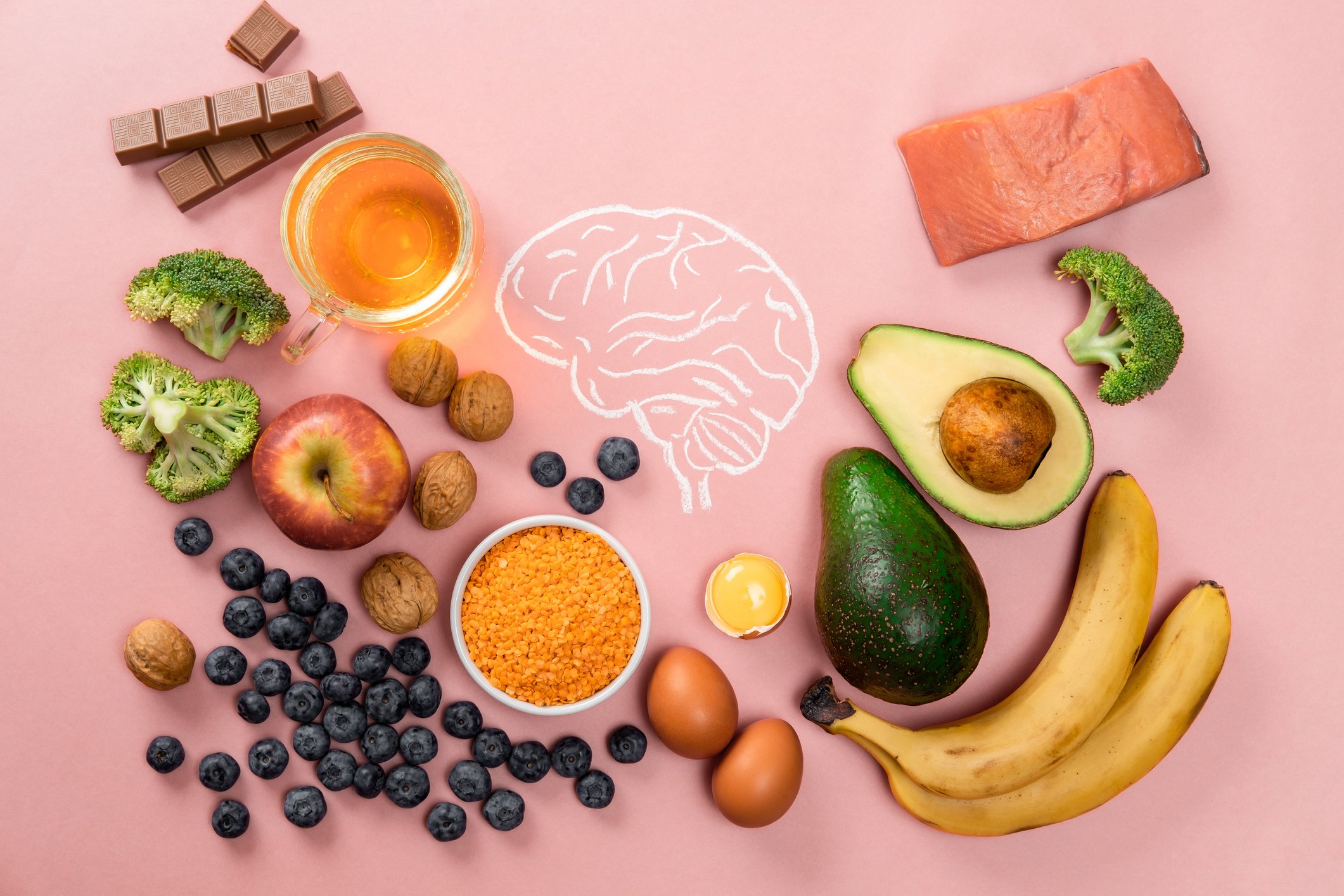Nourish Your Mind: Exploring 8 Brain-Boosting Foods for Cognitive Vitality
Nourish Your Mind: Exploring 8 Brain-Boosting Foods for Cognitive Vitality
Just as physical exercise is essential for a healthy body, nourishing your brain with the right foods is crucial for maintaining cognitive vitality. Your brain's health relies on a combination of factors, including a balanced diet rich in nutrients that support memory, focus, and overall brain function. Here are a few brain-boosting foods that could help you harness your cognitive potential and support long-term brain health.
1. Fatty Fish. Fatty fish like salmon, mackerel, and sardines are rich in omega-3 fatty acids. These essential fats play a key role in building and maintaining brain cell membranes, improving communication between brain cells, and reducing inflammation. Omega-3s are particularly important for memory and cognitive performance.[1][2]
2. Blueberries. Blueberries are packed with antioxidants, including flavonoids and anthocyanins, which have been linked to improved memory and cognitive function. These antioxidants help protect the brain from oxidative stress and inflammation, contributing to long-term brain health.[3]
3. Dark Leafy Greens. Dark leafy greens like spinach, kale, and Swiss chard are rich in vitamins and minerals, including vitamin K, folate, and antioxidants. These nutrients support brain function by promoting healthy blood flow, reducing the risk of cognitive decline, and enhancing overall brain health.
4. Walnuts. Walnuts are a source of healthy fats, including omega-3 fatty acids and antioxidants. Consuming walnuts regularly may improve cognitive function and support brain health by enhancing brain structure and connectivity.[4]
5. Turmeric. Turmeric contains curcumin, a compound with powerful anti-inflammatory and antioxidant properties. Curcumin has been shown to cross the blood-brain barrier, potentially benefiting brain health by reducing inflammation and boosting brain-derived neurotrophic factor (BDNF), a growth hormone linked to improved brain function.[5][6]
6. Eggs. Eggs are an excellent source of choline, a nutrient important for brain health and memory. Choline is a precursor to acetylcholine, a neurotransmitter that plays a vital role in learning and memory.[7]
7. Pumpkin Seeds. Pumpkin seeds are rich in magnesium, iron, zinc, and copper. These minerals are essential for brain function, supporting cognitive processes such as memory, concentration, and learning.[8]
8. Broccoli. Broccoli is a member of the cruciferous vegetable family and is rich in antioxidants and compounds that protect brain cells from damage. It is also a source of vitamin K, which is important for forming sphingolipids, a type of fat that is abundant in brain cells.
Incorporating brain-boosting foods into your diet is a proactive step towards maintaining cognitive vitality and long-term brain health. By enjoying a variety of nutrient-dense foods like fatty fish, blueberries, dark leafy greens, walnuts, turmeric, eggs, pumpkin seeds, and broccoli, you can provide your brain with the essential nutrients it needs to thrive. Remember that a balanced diet, regular physical activity, and overall healthy lifestyle choices are key to supporting your brain's well-being throughout life. Embrace the power of brain-boosting foods and nourish your mind for a brighter, sharper, and more vibrant future.
[1] Swanson, D., Block, R., & Mousa, S. A. (2012). Omega-3 fatty acids EPA and DHA: health benefits throughout life. Advances in Nutrition, 3(1), 1-7.
[2] Calder, P. C. (2013). Omega-3 fatty acids and inflammatory processes. Nutrients, 5(7), 2821-2822.
[3] Krikorian, R., Shidler, M. D., Nash, T. A., Kalt, W., Vinqvist-Tymchuk, M. R., Shukitt-Hale, B., & Joseph, J. A. (2010). Blueberry supplementation improves memory in older adults. Journal of Agricultural and Food Chemistry, 58(7), 3996-4000.
[4] Morris, M. C., Tangney, C. C., Wang, Y., Sacks, F. M., Bennett, D. A., & Aggarwal, N. T. (2015). MIND diet associated with reduced incidence of Alzheimer's disease. Alzheimer's & Dementia, 11(9), 1007-1014.
[5] Small, G. W., Siddarth, P., Li, Z., Miller, K. J., Ercoli, L., Emerson, N. D., ... & Bookheimer, S. Y. (2018). Memory and Brain Amyloid and Tau Effects of a Bioavailable Form of Curcumin in Non-Demented Adults: A Double-Blind, Placebo-Controlled 18-Month Trial. The American Journal of Geriatric Psychiatry, 26(3), 266-277.
[6] Wang, Y., Li, M., Xu, X., Song, M., Tao, Y., Bai, W., ... & Xu, X. (2018). A Review on Curcumin in Central Nervous System Diseases. CNS & Neurological Disorders-
[7] Zeisel, S. H., da Costa, K. A., & Franklin, P. D. (1991). Choline, an essential nutrient for humans. The FASEB Journal, 5(7), 2093-2098.
[8] Mavroudis, I. A., Pyliotis, E., Goussia, A., & Vasdekis, V. G. (2014). Pumpkin seeds supplementation in diet reduces the intensity of Benign Prostatic Hyperplasia (BPH) and atherogenicity of plasma in men. International Urology and Nephrology, 46(5), 857-865.

